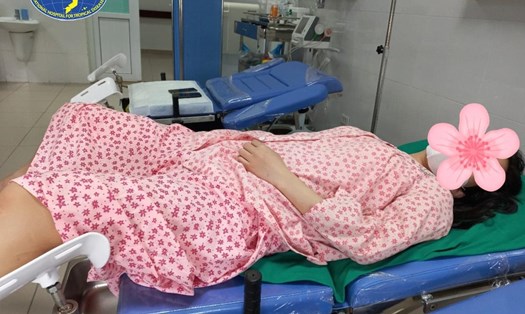Female patient V.T.D (26 years old, residing in Lang Son) was admitted to the hospital with itching, red skin, swelling all over the body, ulcers of the mouth, nose lining, conjunctivitis and genitals.
About 10 days before, the patient had to deal with tooth pain and bought painkillers at a pharmacy near his home. Because she did not inform the pharmaceutical doctor about her history of Lupus issued red - an underlying disease she was being treated for, she continued to take more smothering when she had a fever the next day. After taking the medicine, the body began to develop redness, severe itching, and edema and was taken to a medical facility for diagnosis of drug allergy. Despite being treated for a week, the condition did not improve but progressed more severely, forcing her to be transferred to the Central Hospital for Tropical Diseases.
Here, doctors determined that the patient had a severe drug allergy reaction, leading to Stevens- Johnson syndrome (SJS) - also known as toxic supercutaneous necrotizing syndrome, which occurs on the basis of systemic red Lupus. The patient showed signs of widespread skin necrosis, atherosclerosis of less than 10% of the body area, accompanied by mucosal ulcers and sepsis.
Doctor Nguyen Thanh Tung, Central Hospital for Tropical Diseases, said that allergic reactions also cause acute kidney failure, high urinary protein and the risk of death if not treated promptly.
After 10 days of active treatment, the patient's health improved significantly. Larygeal damages recover well thanks to the coordination of specialties such as eye, ENT, and gynecology. Infection and kidney function have also stabilized. The patient was discharged from the hospital on the afternoon of April 9, 2025.
Dr. Tran Thi Hai Ninh - Head of the Department of Internal Medicine, Central Hospital for Tropical Diseases recommends that people absolutely should not buy and use medicine without a doctor's prescription, especially those with chronic underlying diseases. The use of drugs requires professional advice to avoid the risk of allergies, anaphylactic shock or other dangerous complications. Patients also need to closely monitor unusual signs after taking the drug and go to a medical facility immediately if there are suspicious signs.











